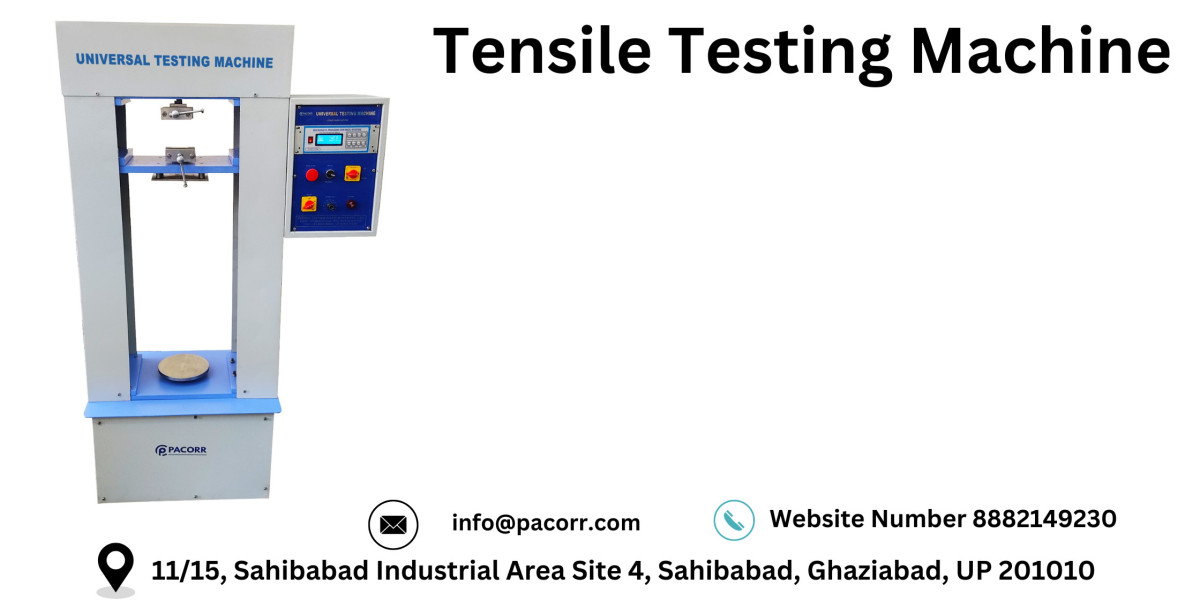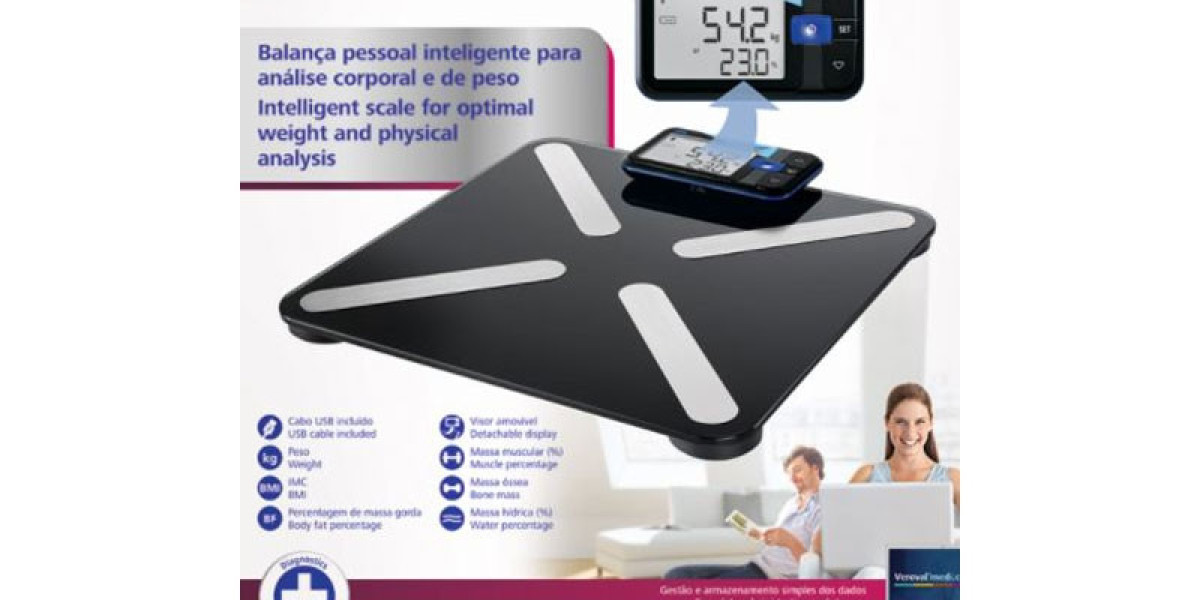Introduction
In the field of material testing, the Tensile Testing Machine stands out as an essential instrument for determining the mechanical properties of materials. These machines play a crucial role in ensuring that materials used in various industries meet the required standards for strength and durability. This article will explore the functionalities, applications, and advantages of Tensile Testing Machines, highlighting their importance in quality assurance processes.
What is a Tensile Testing Machine?
A Tensile Testing Machine Price, also known as a universal testing machine (UTM), is designed to test the tensile strength and elongation properties of materials. By applying a controlled tensile force to a specimen, the machine measures how much the material stretches before breaking. This data is critical for understanding the material’s behavior under stress and its suitability for specific applications.
Key Features and Specifications
- High Precision Load Cells: These sensors provide accurate measurement of force applied to the specimen.
- Versatile Grips and Fixtures: Adaptable to various specimen shapes and sizes, ensuring comprehensive testing capabilities.
- Advanced Control Systems: User-friendly interfaces and software for setting test parameters, monitoring progress, and analyzing results.
- Robust Construction: Built to withstand rigorous testing conditions, ensuring long-term durability and reliability.
- Safety Features: Incorporates emergency stop functions and protective enclosures to ensure operator safety during tests.
Applications of Tensile Testing Machines
Tensile Testing Machines are utilized across a wide range of industries to ensure materials meet specific strength and durability requirements:
- Construction: Testing the tensile strength of steel, concrete, and composite materials used in buildings and infrastructure.
- Automotive: Evaluating the strength of metals, polymers, and composites used in vehicle manufacturing to ensure safety and performance.
- Aerospace: Ensuring that materials used in aircraft and spacecraft can withstand extreme forces and environmental conditions.
- Textiles: Assessing the tensile properties of fabrics and fibers to guarantee durability and quality.
- Plastic and Polymer Industry: Testing the mechanical properties of various plastics to ensure they meet application-specific requirements.
Benefits of Using a Tensile Testing Machine
- Quality Assurance: Ensures materials meet industry standards and specifications, enhancing product reliability and safety.
- Research and Development: Provides valuable data for developing new materials and improving existing ones.
- Cost Efficiency: Reduces material waste and product failures by identifying weaknesses before production.
- Compliance: Helps manufacturers comply with international standards and regulations for material performance.
- Customer Satisfaction: Ensures end products are durable and reliable, boosting customer confidence and satisfaction.
How a Tensile Testing Machine Works
- Preparation: The specimen is prepared according to standardized dimensions and mounted in the machine’s grips.
- Testing: The machine applies a controlled tensile force, stretching the specimen until it breaks.
- Data Collection: Throughout the test, the machine collects data on the applied force and the material’s elongation.
- Analysis: The collected data is analyzed to determine the material’s tensile strength, elongation at break, and other mechanical properties.
Choosing the Right Tensile Testing Machine
When selecting a Tensile Strength Tester , consider the following factors to ensure it meets your specific needs:
- Capacity: Choose a machine with a load capacity suitable for the materials you will test.
- Versatility: Ensure the machine can accommodate different specimen sizes and shapes.
- Precision: Look for high-precision load cells and advanced control systems for accurate measurements.
- Durability: Opt for a robust machine built to withstand frequent testing.
- Support and Service: Select a reputable manufacturer that offers excellent customer support and maintenance services.
Conclusion
The Tensile Testing Machine is a vital tool for any industry that relies on the strength and durability of materials. By providing precise and reliable data on material properties, these machines help manufacturers maintain high standards of quality and safety. Investing in a Tensile Testing Machine from a trusted provider like Pacorr Testing Instruments ensures that you have the right equipment to meet your testing needs and achieve excellence in your products.
For more information on Tensile Testing Machines and other material testing solutions, visit Pacorr Testing Instruments.
This comprehensive guide covers all critical aspects of Tensile Testing Machines, emphasizing their significance in various industries. If you need further adjustments or additional details, feel free to ask!
Frequently Asked Questions (FAQ) About Tensile Testing Machines
1. What is a Tensile Testing Machine?
A Tensile Testing Machine is a device used to test the tensile strength and elongation properties of materials by applying a controlled tensile force until the material breaks. It provides valuable data on the material's mechanical properties.
2. How does a Tensile Testing Machine work?
The machine works by mounting a specimen in its grips and applying a tensile force. As the specimen is stretched, the machine measures the force and elongation until the specimen breaks. The data collected helps determine the material's tensile strength and other properties.
3. What materials can be tested with a Tensile Testing Machine?
Tensile Strength Tester can test a wide variety of materials, including metals, plastics, composites, textiles, and construction materials. The machine's versatility allows it to accommodate different shapes and sizes of specimens.
4. What are the key features to look for in a Tensile Testing Machine?
Key features to consider include high precision load cells, versatile grips and fixtures, advanced control systems, robust construction, and safety features. These ensure accurate measurements, adaptability, durability, and operator safety.
5. Why is tensile testing important?
Tensile testing is crucial for understanding the mechanical properties of materials. It helps ensure that materials meet specific strength and durability requirements, which is essential for quality assurance, research and development, and regulatory compliance.
6. How can tensile testing improve product quality?
By identifying material weaknesses and ensuring they meet industry standards, tensile testing helps improve product reliability and performance. This reduces the risk of product failures and returns, enhancing customer satisfaction.
7. What industries benefit from using Tensile Testing Machines?
Industries such as construction, automotive, aerospace, textiles, and plastics benefit from tensile testing. These industries rely on the mechanical properties of materials to ensure safety, performance, and durability.
8. How do I choose the right Tensile Testing Machine?
Consider factors such as load capacity, versatility, precision, durability, and support services. Select a machine that matches your testing requirements and choose a reputable manufacturer for quality assurance.
9. What safety features should a Tensile Testing Machine have?
Essential safety features include emergency stop functions, protective enclosures, and overload protection. These features help ensure operator safety during testing operations.
10. Can Tensile Testing Machines be used for research and development?
Yes, Tensile Testing Machines are invaluable for research and development. They provide detailed data on material properties, helping develop new materials and improve existing ones.
11. How often should a Tensile Testing Machine be calibrated?
Regular calibration is essential to maintain the accuracy and reliability of a Tensile Testing Machine. It is recommended to follow the manufacturer's guidelines and industry standards for calibration frequency.
12. What kind of maintenance does a Tensile Testing Machine require?
Regular maintenance includes checking and calibrating load cells, inspecting grips and fixtures, and ensuring that the control systems are functioning correctly. Follow the manufacturer's maintenance schedule for optimal performance.
13. Where can I purchase a Tensile Testing Machine?
Tensile Testing Machines can be purchased from specialized manufacturers like Pacorr Testing Instruments. Choose a reputable provider to ensure quality, support, and service.
14. Are there different types of Tensile Testing Machines?
Yes, there are various types of Tensile Testing Machines designed for different testing needs. Some machines are geared towards high-capacity testing, while others are more suitable for smaller, more precise measurements.
15. How does tensile testing contribute to regulatory compliance?
Tensile testing ensures that materials meet industry standards and regulations for performance and safety. This compliance is critical for product certification and market acceptance.
For more detailed information and inquiries about Tensile Testing Machines, visit Pacorr Testing Instruments. Our experts are ready to assist you with all your material testing needs.
This FAQ section covers the most common questions about Tensile Testing Machines, providing clear and concise answers. If you need further customization or additional questions included, feel free to let me know!
About Tensile Testing Machines
Introduction
Tensile Testing Machines are fundamental tools in material testing, providing critical insights into the mechanical properties of materials. These machines are designed to apply a tensile force to a specimen, measuring its strength and elongation until it breaks. This data is invaluable for ensuring materials meet specific quality and performance standards, making these machines essential in various industries.
What Tensile Testing Machines Work
A Tensile Testing Machine Price operates by securing a material specimen in its grips and applying a controlled tensile force. The machine measures the force applied and the elongation of the specimen, recording the data until the specimen fails. The results help determine the material's tensile strength, elongation at break, modulus of elasticity, and other mechanical properties.
Key Components
- Load Frame: The robust structure that holds the machine components and the specimen.
- Load Cell: A sensor that accurately measures the force applied to the specimen.
- Grips and Fixtures: These hold the specimen in place during testing. They can be adapted for various material types and shapes.
- Drive System: Controls the movement of the crosshead, applying tensile force to the specimen.
- Control System: An interface, often with software, allowing operators to set test parameters, monitor progress, and analyze results.
Applications
Tensile Testing Machines are used across numerous industries:
- Construction: To test the tensile strength of building materials like steel, concrete, and composites.
- Automotive: To evaluate the durability and performance of materials used in vehicle manufacturing.
- Aerospace: To ensure materials can withstand extreme conditions.
- Textiles: To assess the strength and flexibility of fabrics and fibers.
- Plastics and Polymers: To test the mechanical properties of various plastic materials.
Benefits
- Quality Control: Ensures materials meet required standards, leading to reliable and safe products.
- Product Development: Provides data for developing new materials and improving existing ones.
- Cost Savings: Reduces material waste and product failures by identifying issues early in the design process.
- Regulatory Compliance: Helps meet industry standards and regulations for material performance.
- Customer Satisfaction: Ensures end products are durable and reliable, enhancing customer trust.
Choosing the Right Tensile Testing Machine
When selecting a Tensile Testing Machine, consider the following:
- Load Capacity: Ensure the machine can handle the maximum force required for your tests.
- Versatility: Look for machines that can test a variety of materials and specimen sizes.
- Accuracy: High precision load cells and advanced control systems are crucial for reliable data.
- Durability: Choose a machine built to withstand rigorous testing conditions.
- Support: Select a manufacturer that offers excellent customer support and maintenance services.
Conclusion
Tensile Testing Machines are indispensable in ensuring the quality and reliability of materials across industries. By providing precise data on material properties, these machines help manufacturers maintain high standards and foster innovation. Investing in a Tensile Testing Machine from a reputable provider like Pacorr Testing Instruments guarantees you have the right tools to achieve excellence in your products.
For more information on Tensile Testing Machines and other material testing solutions, visit Pacorr Testing Instruments. Our experts are ready to assist you with all your material testing needs.








